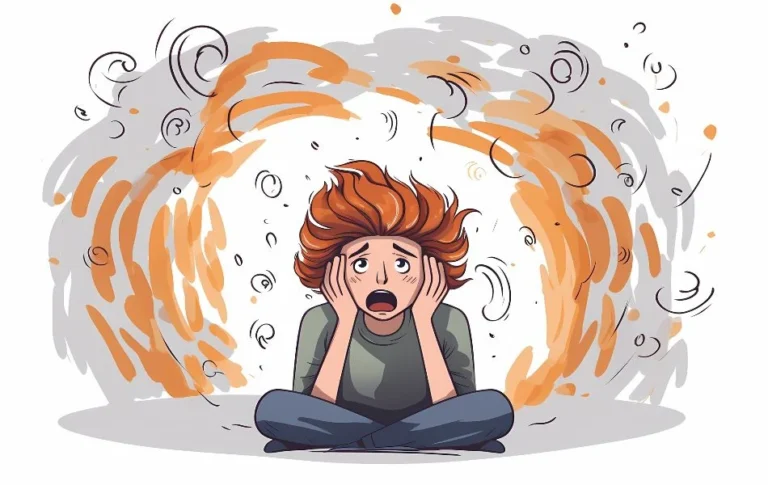Nail Biting: The Hidden Spiritual Messages Behind the Habit
Nail biting is often shrugged off as just a bad habit, but it carries deeper emotional and spiritual meanings. Beneath the surface, this behavior can reveal insights into our inner fears, desires, and struggles. Understanding the spiritual significance behind nail biting can guide you toward finding solutions and fostering personal growth.
What is Nail Biting?
Nail biting, also known as onychophagia, is the chronic biting or picking of nails that can result in damage to the nail plate, surrounding skin, and soft tissues. It frequently happens in kids and adults, often without deliberate intention.
Why Do People Bite Their Nails?
Nail biting often starts in childhood to cope with strong emotions. The reasons can vary, including:
- Self-Soothing: A way to calm down when feeling anxious, frustrated, or impatient.
- Boredom: Sometimes, it’s a mindless habit that kicks in during idle moments.
- Mental Health: It may be linked to conditions like OCD or ADHD.
Many children pick up this habit from family members and find it challenging to break, even as they grow older.
Unpacking the Spiritual Meaning of Nail Biting
So, what does nail-biting mean from a spiritual perspective? Let’s dive into some intriguing interpretations:

1. A Sign of Self-Neglect
Nail biting can symbolize a lack of self-love and self-care. Spiritually, it’s seen as a form of self-mutilation, indicating that you may subconsciously reject parts of yourself due to low self-esteem or self-worth. This habit might be your inner self signaling that you need to practice more self-compassion and care.
2. A Manifestation of Anxiety and Stress
Nail biting is often a physical reaction to emotional turmoil. It can indicate that you’re overwhelmed by life’s challenges and struggling to process intense emotions. This habit might be a way for your body to cry out for help, highlighting the need to address stress and anxiety more effectively.
3. Lack of Self-Control
Regular nail-biting can indicate issues with self-discipline and willpower. It may also reflect procrastination, impulsiveness, or breaking personal commitments. Strengthening self-control through goal-setting and building positive habits could help reduce the urge to bite your nails.
4. Repressed Emotions
Nail biting can also be a silent expression of inner turmoil. If you’re overwhelmed by emotions or life’s challenges, this habit might provide a sense of familiarity and comfort despite being unhealthy. Acknowledging these feelings without judgment and exploring healthier ways to manage emotional distress is essential.
5. Energy Imbalance
From a spiritual viewpoint, our bodies are channels of energy and communication. Nail biting might signify an internal conflict or an energy disruption that needs to be addressed. It could signal to realign your energy and restore harmony within yourself.
6. Spiritual Disconnection
This habit could indicate a more profound spiritual imbalance or a disconnection from your inner self. Nail biting might be a subconscious attempt to find grounding amidst spiritual unrest. Re-establishing a sense of balance and grounding could help resolve this behavior.
7. Fear of Expression
Nail biting can occur when someone is afraid to speak up. This habit might be more common in individuals who struggle to express their thoughts and feelings openly.
What Nail Biting Reveals About a Person
Here’s what others might think about your nail-biting habit:

- Perfectionism: Perfectionists often have a low tolerance for frustration, leading to agitation and, sometimes, nail-biting. This habit may also be linked to conditions like ADHD.
- Stress: Nail biting can stem from various stressors, such as work pressure, family issues, or self-imposed stress from harsh self-judgment.
- Worry: Concerns about upcoming events, finances, or a loved one’s health might trigger nail biting.
- Traumatic Events: Life-changing events, like a family member’s illness, job loss, or relationship issues, can also lead to this habit.
People who bite their nails may do so at varying levels, from simply having short nails to severely damaging the skin around the nails.
Religious Views on Nail Biting
Different religions offer unique perspectives on nail-biting, often linking it to spiritual and moral values:
- Islam: Nail biting is seen as a violation of cleanliness, an essential virtue in Islam. Some scholars view it as bodily harm, which goes against respecting the body as a divine vessel.
- Hinduism: In Hinduism, nail biting is discouraged because it’s believed to disrupt the flow of prana (life energy), leading to imbalances and hindering spiritual progress.
- Buddhism: Nail biting in Buddhism may reflect restlessness and a lack of mindfulness. It’s a habit that contradicts the pursuit of inner peace and enlightenment.
- Christianity: Some Christian teachings associate nail biting with a lack of discipline and self-control, likening it to self-harm.
Cultural Perspectives on Nail Biting
Cultural views on nail-biting vary widely across the globe:
- Eastern Cultures: In countries like China, Japan, and India, nail biting is considered poor etiquette and a sign of low self-discipline. For example, in Japan, children are taught that biting nails is akin to eating human flesh, a taboo in society.
- Middle Eastern Views: Nail biting is often seen as a sin, considered a form of self-mutilation, which is discouraged as it goes against taking care of the body, a gift from God.
- African Beliefs: In some West African cultures, nail biting is viewed as a sign of nervousness and inner unrest, particularly discouraged during formal events.
- Latin American and Western Cultures: While nail biting is often seen as an unpleasant habit, it’s usually regarded with a mix of curiosity and mild disapproval, particularly in casual settings.
Frequently Asked Questions (FAQs)
1. What vitamin deficiency causes nail-biting?
Iron and vitamin B6 deficiencies might contribute to chronic nail biting. However, emotional factors usually play a significant role as well.
2. Can meditation help stop nail-biting?
Yes, mindfulness meditation can reduce anxiety and increase self-awareness, helping to manage nail-biting triggers.
3. What type of counseling helps with nail-biting?
Cognitive Behavioral Therapy (CBT) effectively addresses nail-biting by building coping skills and substituting healthier habits.
See Also – Exploring the Spiritual Meanings of Vertigo
Conclusion
Nail biting is more than a simple habit; it’s a window into your spiritual and emotional state. You can start a journey toward emotional balance and spiritual well-being by understanding its deeper meanings. Everyone’s experience is unique, so keep exploring and growing on your path to self-discovery.








